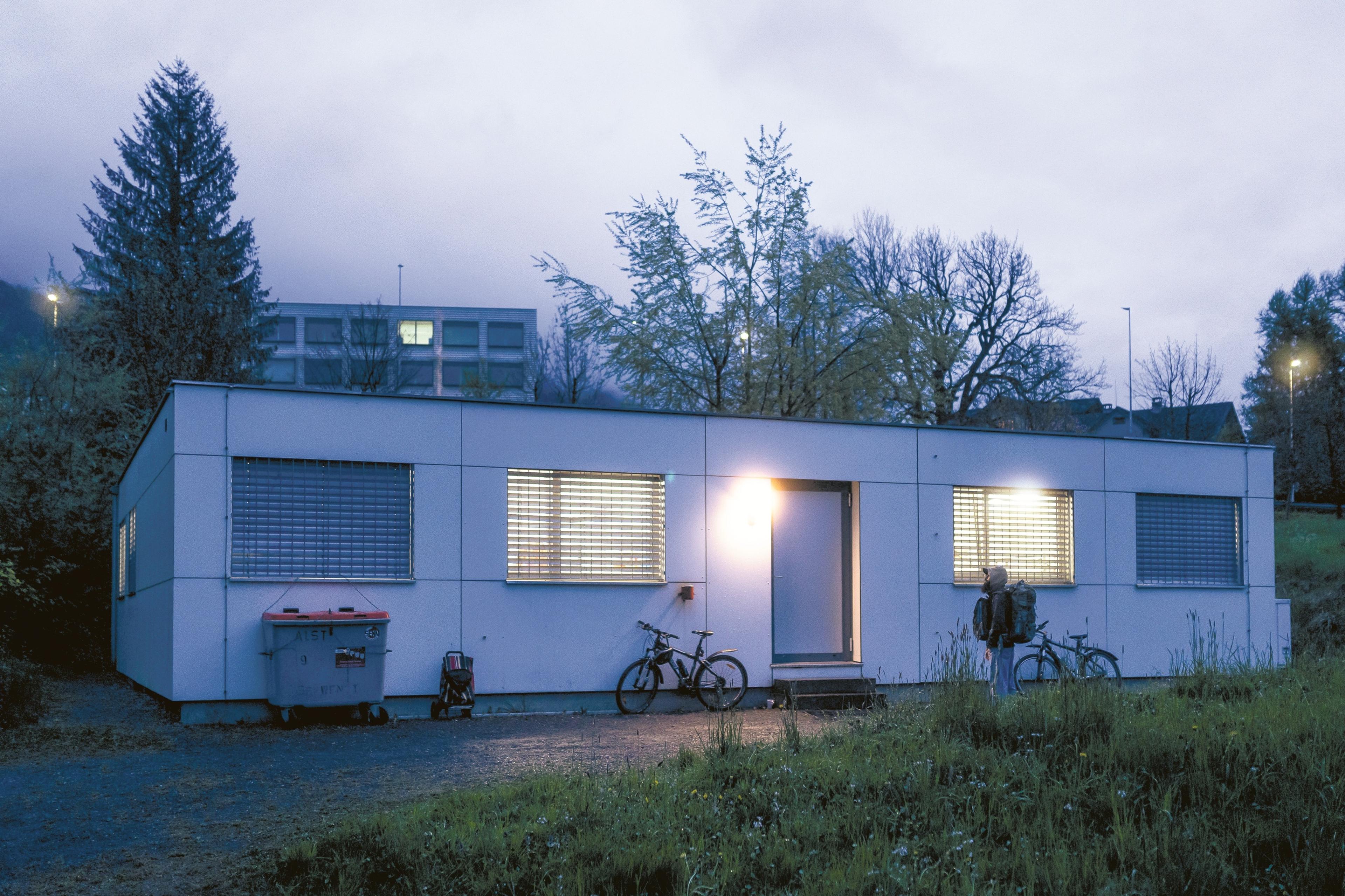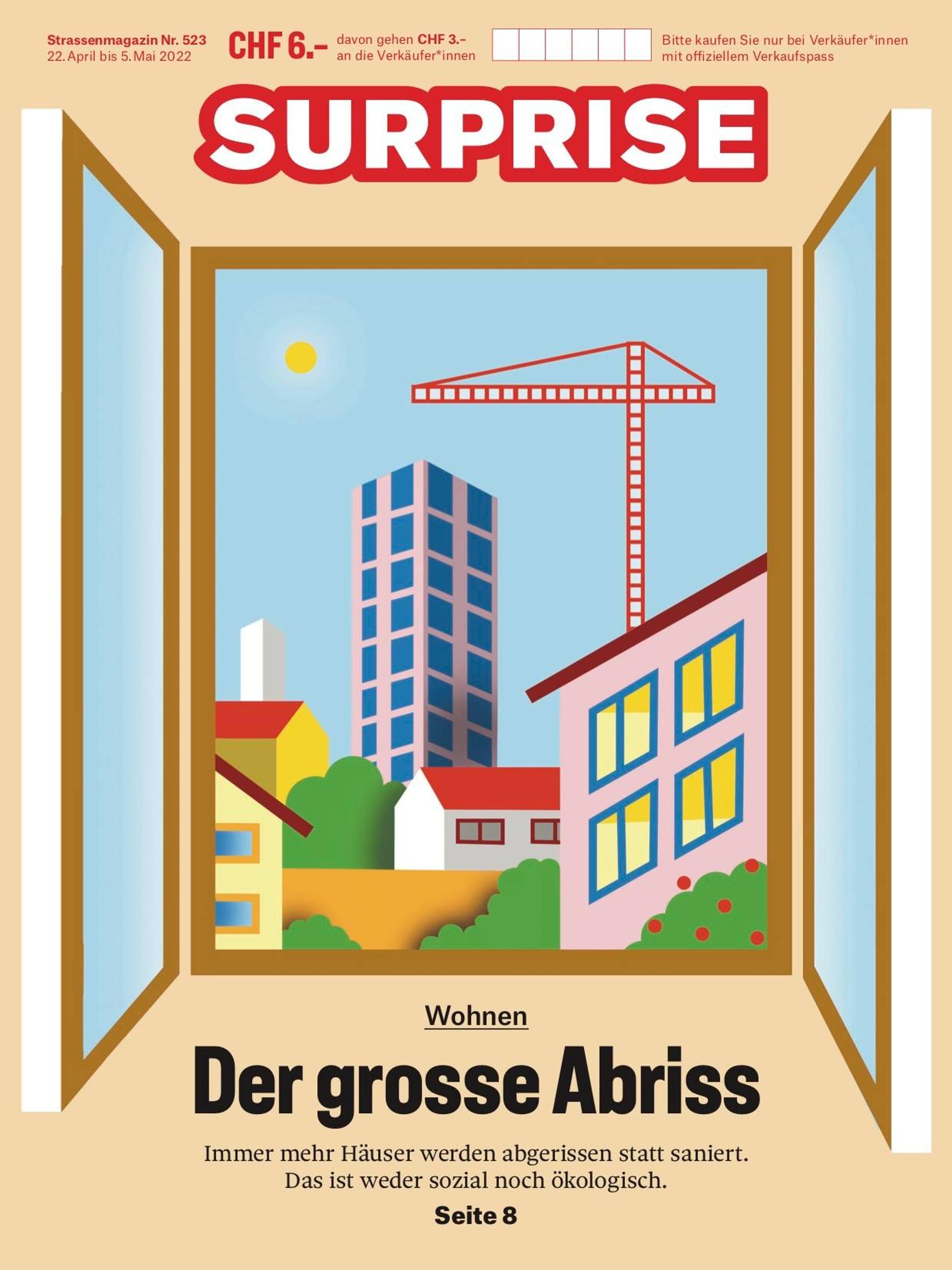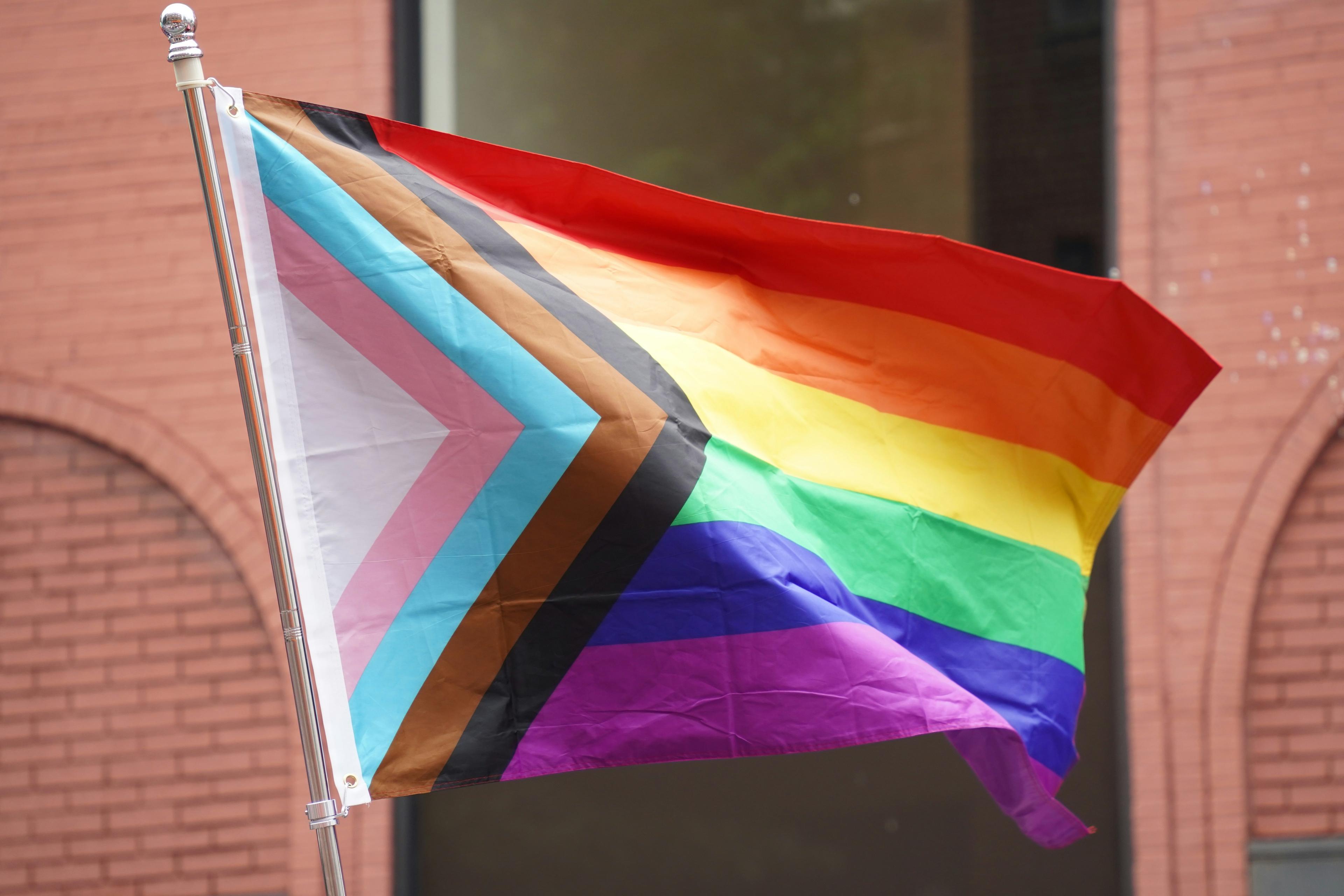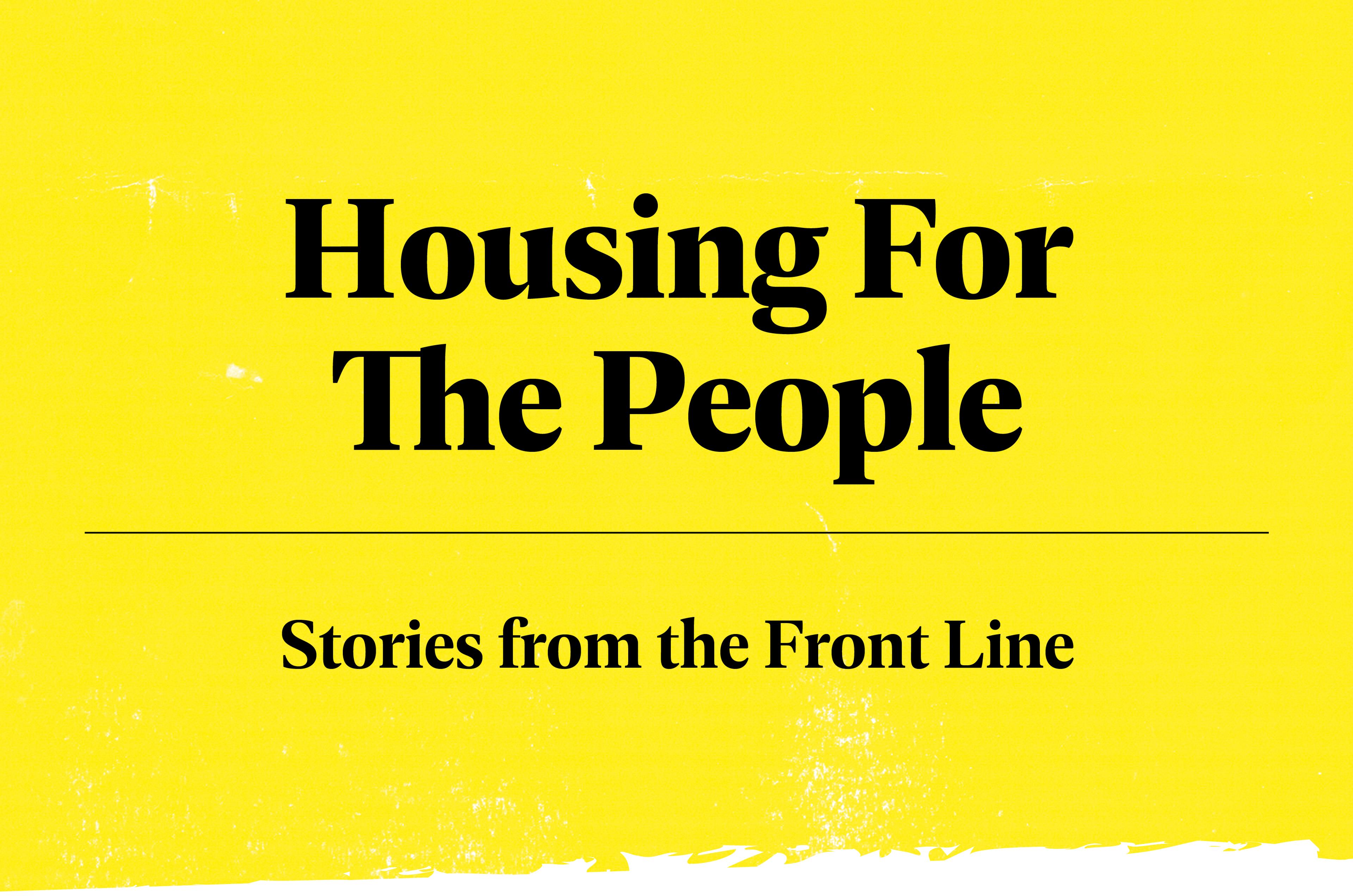Locked out: inside Switzerland’s migrant accommodation

Photo by Kira Kynd
By Kira Kynd and Annika Lutzke
Translated from German via Translators Without Borders
- Lived experience

A young Somali man runs around a white prefabricated hut in the drizzle. He holds a beer can with one hand and bangs his head incessantly with the other. He repeatedly points to the locked hut and shouts, “This is Switzerland. This is what Switzerland is doing to us.”
Habbane Bouraz is one of 16 single men living in the Kaltbach emergency shelter in Schwyz. His real name—like all the residents of the accommodation mentioned in this article—has been changed.
In the small town with fewer than 200 inhabitants, there are no shops other than a petrol station. At night, the asylum seekers sleep in the prefabricated hut between the military office, the tourist office and a bypass. During the day, however, they are put out on the street and excluded.
“These conditions are breaking us psychologically,” says Farid Abbas, 32, who fled Iran more than 10 years ago. He stands in the rain next to Habbane Bouraz; there is no canopy. He has a full beard and wears sunglasses and a cap with the inscription “Mr. No One”.
It is 6:30pm, and more and more men are slowly gathering on the small gravel area in front of the hut. The Swiss immigration authorities have rejected their asylum applications or revoked their residence permits. Since then, they have been living in the Kaltbach emergency shelter, where they wait every evening in front of the barred windows for the security guard to let them into their beds.
Once, on 13 April, they protested on this very gravel area for an improvement in their living conditions, holding signs that read, “We have no life! We have no freedom!” or, “Empty hearts”, or, “They can’t feel us.” They stuck a note on the door of the accommodation that read, “Welcome to the Psych Lab”, as if it were an experimental laboratory.
Bouraz has been housed in Kaltbach for nine months. “You can’t stand life here,” he says. Once, he left and sought a future in another European country, but the police there arrested him and handed him over to the Swiss authorities, who brought him back to Kaltbach. Even if Switzerland does not want him, it remains responsible for him according to the Dublin Regulation. The Swiss authorities do not have a readmission agreement with Somalia that permits his deportation.
At 7pm, an employee of the private security company Schilter Sichern-Bewachen AG, which was commissioned by the Immigration Office to monitor the emergency shelter, appears. He wears a hi-vis vest and a wide-brimmed hat. Behind him, the men line up for the nightly roll call.
He unlocks the hut. Anyone who is late will be sanctioned. The men have 10 francs per day on which to survive. The money is paid out every week on Friday at the Office for Migration in the cantonal capital of Schwyz, a 30-minute walk away. Being late once means a 10-franc deduction.
“Pocket money” is part of emergency aid. According to Article 12 of the Federal Constitution, every person in need is entitled to “assistance, care and the means necessary for a dignified existence”.
This right only became significant when rejected asylum seekers were excluded from regular welfare payments, which guarantee a minimum standard of living for all other people in Switzerland, sparking discussion of what constitutes a “dignified existence” for rejected asylum seekers. Since rejected asylum seekers are obliged to leave the country, it was decided they should only receive the bare minimum. Emergency aid thus serves both as emergency support and as a means of pressure to leave the country.
According to legal academics, this combines two essentially incompatible principles into one practice: a constitutional provision that was created to protect people from destitution is simultaneously being used to enforce asylum policy objectives.
It is blindingly bright in the prefabricated hut. The rooms are cramped and bare, and most of the men immediately retreat to their beds as soon as the security guard lets them in.
“Yesterday there were six of us in the room. This morning the police came and took away a man from Nigeria. Now there are only five of us,” says Karim Pirani, 47. He has been living in Kaltbach for 11 months and, like Abbas, comes from Iran. He does not know what happened to the man from Nigeria: “I think he was deported; that happens regularly here.”
The three sleeping areas with bunk beds, the small kitchen and the bathroom offer little privacy. “Because we are locked out all day, there is a huge rush in the evening for the only washing machine and the cooker,” says Pirani. At 10pm, the security guards come back and lock up the kitchen.
The nights are also difficult in the “bunker”, as the residents call the accommodation. “Someone is always snoring,” says Abbas. Unlike other emergency accommodation, there are windows here, but it is no place to live.
At 8am, two security guards wake the men up. They must then sign again to confirm their presence, pack their belongings and leave the accommodation by 9:30am at the latest. Abbas says that the security guards walk through the rooms and sing cynically, “Good morning, dear little foreigners! Stand up, you must leave the country!” Pirani laughs bitterly at the story and nods.
Schilter AG’s position on the incidents described remains unclear; according to their response to our enquiry, they “does not provide any information for security reasons”.
According to the Office for Migration, residents must also contact the same security staff in the event of illness or mental health crises. In any case, they must spend the day outside. Those affected will only receive medical treatment once they report to the Migration Office.
The cantons determine how the minimum entitlement to emergency aid for food, clothing and shelter is implemented. In Schwyz, the Migration Office is therefore relying on an emergency shelter that is closed during the day and has no day rooms. In response to an inquiry, its head of department, Tünde Szalay, wrote that emergency aid should be limited to “the minimum standard” and should not provide an incentive to remain in Switzerland.
However, in many cantons, such as Bern, even rejected single male asylum seekers are provided with continuous access to accommodation. When asked, a spokesperson said that accommodation that is closed during the day is not sufficient to provide “stability, safety and as normal an everyday life as possible.” It is therefore “a political decision” to focus on continuously accessible accommodation.
According to reports from residents of the Bern immigration removal centre, life there is also gruelling and far from normal everyday life.
In the canton of Schwyz, not all rejected asylum seekers are locked out during the day. Women and families are accommodated in separate accommodation, where they can also stay during the day.
The next day, Karim and Farid head to Mitenand Schwyz. The old house is located in the heart of the city of Schwyz and serves as a meeting place for asylum seekers and locals. It is an incentive worker-run project. Under the canopy, co-initiator Charlotte Siegwart sits on a green wooden bench and greets the men with a hug.
Thanks to a service level agreement, the association receives some money from the municipality to cover some costs, such as heating. The wooden house has no central heating and a leaky roof.
The Mitenand association organises German courses, painting classes, childcare, conversation groups, and offers free clothing and bicycles. The wooden staircase to the upper floor creaks with every step.
It’s warm inside, and the aroma of lasagne fills the air. Today, there are about 20 refugees present, 10 of them from Kaltbach. In the narrow kitchen, people are talking, laughing and cooking—like every Wednesday.
Here, people can relax here for a few hours. “This is a safe place,” says Abbas, serving tea and lemon cake, “but unfortunately, even Mitenand cannot always keep its door open for us.”
Berzan Demirtaş, a young Kurdish man, joins us. “Yesterday, we were at the train station during the day, today at the shopping centre—where should we go tomorrow?”
“People get upset about ‘men loitering’ without knowing that they have no place to go and are not allowed to work,” Siegwart adds.
Depending on the weather conditions, those turned away look for other places to stay during the day, explains Abbas—often simply a free park bench. “Everyone has their own plan and survival strategy.” Some travel to Lucerne or Zurich to attend German courses or other facilities, while others keep themselves busy with sport. “There is nothing to do. We’re just waiting for time to pass. And the next morning, we regret the waste of the previous day.”
Life under emergency aid conditions takes a heavy psychological toll on the residents. That is why, as part of the protest in front of the accommodation in April, they decided to publish an open letter through the channels of the Migrant Solidarity Network, an organisation that supports refugees to stand up for their rights. In it, they describe the intolerable conditions of the accommodation: “We have a choice between death or a place that makes us sick.”
The letter lay on a table in the accommodation for weeks. Abbas would have liked to publish it earlier, but Siegwart initially held him back. She wanted to speak to the immigration authorities first.
Five years ago, a conversation had in fact led to some necessary improvements: the department replaced bedbug-infested mattresses, installed a washing machine, and allowed residents to stay in their accommodation during the day when temperatures dropped below freezing—a practice that still applies today.
At the beginning of April, Siegwart again expressed hope for a dialogue with the head of department, “but this time we hit a brick wall.” She is not surprised: “Xenophobia is too strong in Schwyz.” Public opinion towards refugees is inhumane, she says, “not only in Schwyz, but throughout Europe and worldwide.”
Just as they did not respond to the public protest, the Schwyz Migration Office also did not respond to the open letter. At the end of April, Bouraz, Pirani, Abbas and three other residents shifted their protest and spent an entire Friday in front of the Migration Office in Schwyz to demand an improvement in their living conditions.
“Despite the rain, we are here, and we will continue on Monday,” Abbas said. By Monday, there were already eight of them. On Tuesday, the office called the police—and the protesters were removed from the private property. The police briefly arrested Abbas because he does not have the legal right to remain in Switzerland.
“We will not change our practice,” wrote head of department Szalay in response to a request from Surprise.
The residents of the Kaltbach emergency shelter continued to gather daily in a public square in the centre of Schwyz for the rest of the week. For Abbas and his peers, one thing is clear: “We have to fight for ourselves—no one else will do it.”

